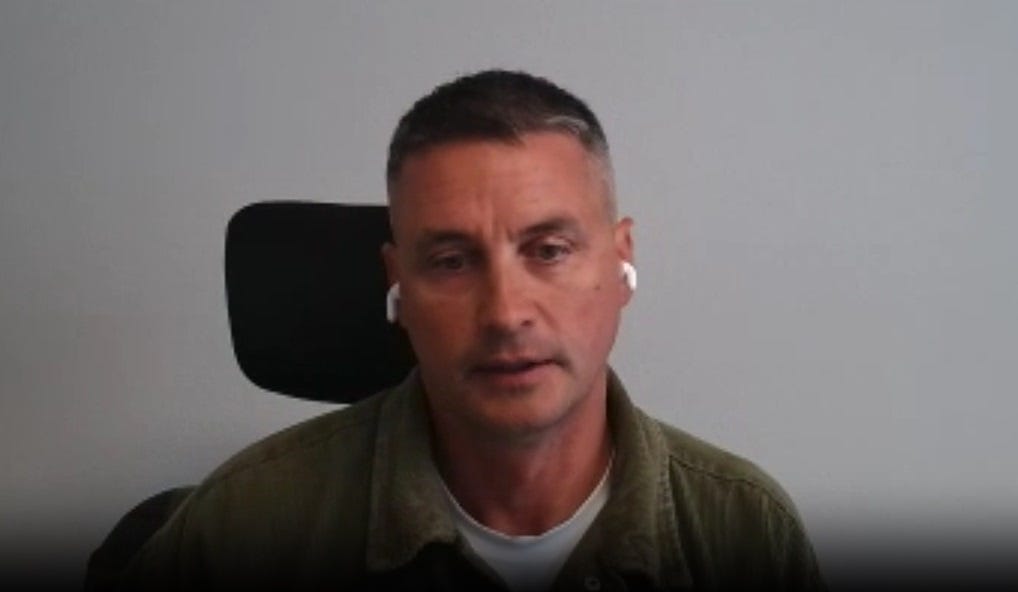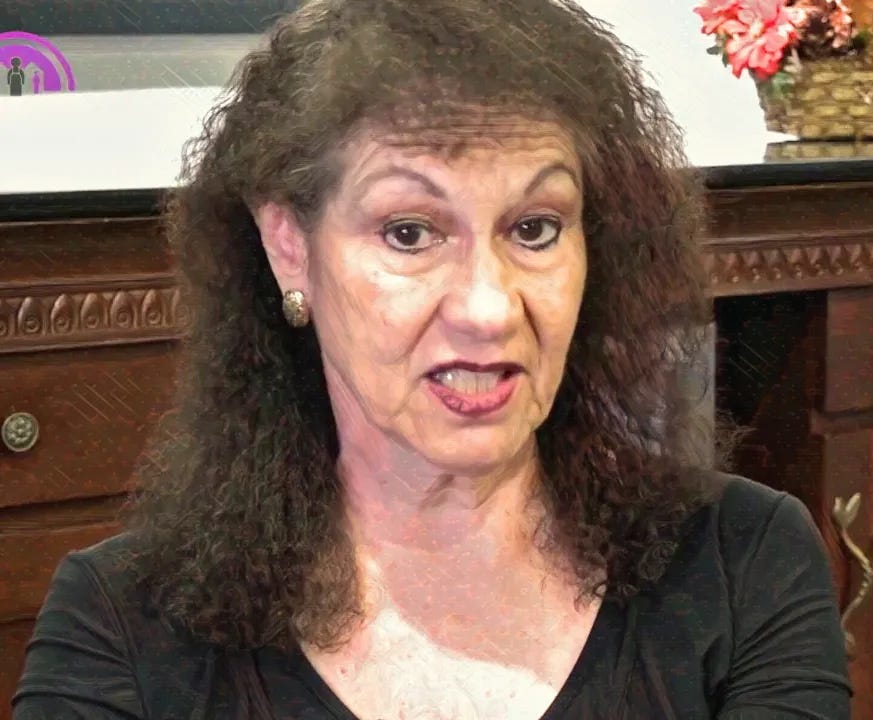NOTE: This article discusses “Reunification Therapy.” The term itself is vague. It may encompass non-controversial aspects of Family Therapy. However, in its extreme form, Reunification Therapy, particularly “shock camps,” is considered by many as a form of child abuse, and the practice is banned in five states.
“Two armed sheriff’s deputies showed up at my door and immediately asked if the children were home. I said no, and I closed the door and panicked, trying to figure out what to do. I opened the door and said, ‘No, the kids are here. Give me 20 minutes so we can pack up their stuff.’ I went to wake them up, and they were instantly terrified, sobbing, but compliant. My youngest daughter even said she would kill herself if they made her go.” - Filip Hanik
By Richard Luthmann
Filip Hanik, a software engineer and military veteran, recently sat down with Richard Luthmann to share his family's experience with reunification therapy, particularly under the guidance of Linda Gottlieb and her organization, Turning Points For Families. The interview paints a disturbing picture of the impact this therapy had on Filip, his two daughters, and their relationship with their mother, Teresa Hanik.
“I came to the U.S. from Sweden in 1997,” Filip began, explaining his background. “I’ve been here for 27 years. I served in the U.S. armed forces, with a deployment to Afghanistan. I have two daughters—Alexandra, who’s 18 and recently aged out of the family court system, and Ember, who’s 15 and still caught in it.”
Filip’s battle in family court began in February 2019 when his marriage with Teresa fell apart. Filip initially sought an amicable separation but soon became embroiled in a legal battle.
“By the summer of 2019, my ex-wife had lawyered up,” Filip said. “She told me her lawyer advised dragging out the process to get a better settlement.”
It was during this legal struggle that Filip encountered reunification therapy. Reunification therapy is designed to repair relationships between estranged parents and their children. But for Filip, it became something much darker.
“In 2021, we tried reunification with two psychologists—Dr. Wendy Borg and Dr. John Moran,” Filip explained. “It was a weekend-long intensive session. It didn’t go well. The psychologists were concerned about my ex-wife’s behavior.”
Filip recalled how Dr. Moran warned him: “He said, ‘I believe her next step will be to accuse you of alienation simply because the girls don’t want to see her.’”
According to Filip, that’s precisely what happened.
After the failed attempt at reunification, Filip’s case took a turn for the worse. In 2022, another therapist, Dr. Lauren MacNeil, was brought in. This time, the therapy had a completely different tone.
“She believed the kids shouldn’t have a say in whether they had a relationship with their mother or not,” Filip said. “When my oldest daughter had a panic attack during a session, the therapist told me to put her in the car. I couldn’t believe it.”
Things escalated when Teresa, with the support of the court-appointed therapists, introduced Linda Gottlieb’s Turning Points For Families into the case. Gottlieb, known for her controversial reunification programs, was brought in to oversee the therapy. Filip described the process as “coercive” and harmful to his daughters.
“Gottlieb’s program was designed to isolate my children from me completely. The arbitrator ordered that they couldn’t talk to me, my family, or anyone who knew me until Gottlieb deemed reunification successful.”
Filip was stunned by the court’s decision, especially when he tried to appeal.
“I filed a motion for reconsideration, with letters from my daughters’ therapists and doctors warning the court that this would cause irreparable harm. The arbitrator denied the motion, saying there was no new evidence.”
In November 2022, the situation reached a critical point.
“Two armed sheriff’s deputies showed up at my door to take my children,” Filip recalled. “The girls were terrified. My youngest daughter even said she would kill herself if they made her go.”
The deputies tried to convince the girls to go with their mother for three hours.
“My oldest daughter put her phone down her pants so they couldn’t take it. She even started recording the conversation,” Filip said. Eventually, the stress became too much, and both girls were hospitalized for three days.
It wasn’t until a hospital director called the judge personally that the girls were returned to Filip’s care.
“The hospital told the court they wouldn’t release the children to their mother,” Filip said. “The judge finally signed an order giving me back custody.”
Despite this victory, Filip’s legal battles are far from over. He has since filed a lawsuit against Teresa and Gottlieb, accusing them of orchestrating a harmful custody switch.
“This was an orchestrated attempt to change custody, knowing it would cause harm,” Filip said. “I’m now being financially sanctioned by the court for not complying with the order.”
Teresa was recently dropped from the case on procedural grounds. He expects a similar legal fate for Gottlieb and her organization, but he says his battle is not over.
Filip remains deeply critical of Linda Gottlieb’s reunification program, describing it as a “money-making machine” that preys on vulnerable families.
“She charges $450 an hour,” Filip said. “There’s no incentive for her to reunify families. The longer we stay in conflict, the more money she makes.”
Filip’s story is cautionary for parents caught in high-conflict custody battles.
“Avoid court if you can,” he advised. “The family court system doesn’t care about kids or parents. They just keep these cases alive to feed the system.”
He also urges parents to listen to their children.
“I used to believe in 50-50 custody,” Filip admitted. “But children aren’t property. They need to have a say in what happens to them.”
As Filip’s legal fight continues, he remains committed to protecting his daughters from further harm.
“I believe the system targeted us because we had money,” Filip said. “This is an industry that thrives on conflict. But I won’t stop fighting for my girls.”














